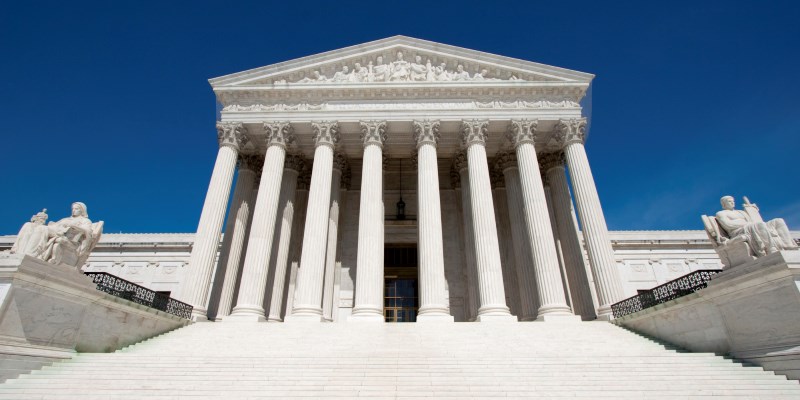Politics
Supreme Court Rules on Federal Law Interpretation in Snyder Case
Supreme Court rules issued a sharply divided 6-3 ruling that delves into the nuances of federal law regarding gratuities and bribery, with significant implications for public officials nationwide. The ruling has sparked widespread debate among legal experts and policymakers, as it clarifies the boundaries between acceptable political contributions and unlawful influence peddling. This decision underscores the Supreme Court’s role in shaping the interpretation of fede
Majority Opinion and Dissent
Justice Brett M. Kavanaugh, who led a conservative majority, narrowly interpreted the federal bribery law in James Snyder’s case. The court concluded that the law applies strictly to gifts given before official actions, not gratuities received afterward. Snyder faced allegations of accepting a $13,000 payment from a local trucking company after a city purchase, accused of steering business to them.
Justice Ketanji Brown Jackson, in a dissent joined by liberal justices, criticized the majority’s interpretation as unsupported by the law’s text, arguing that Snyder’s actions fit within the broader intent of the statute.
Justice Ketanji Brown Jackson dissented, arguing that Snyder’s actions aligned with the statute’s broader intent, according to WSJ Print Subscription
Case Background and Legal Arguments
Snyder, maintaining his innocence throughout, contended that the payment was for legitimate consulting work rather than an illegal gratuity. Despite his defense, a federal jury convicted him, a decision that was upheld by the U.S. Court of Appeals for the 7th Circuit prior to the Supreme Court’s review.
Implications and Public Reaction
The ruling has sparked varied reactions. Advocates of strict anti-corruption measures are concerned that it could weaken accountability efforts. Keith Thirion of Alliance for Justice lamented its potential to normalize gift-receiving by public officials. Conversely, defenders of the decision, including Snyder’s attorney Lisa Blatt, have refrained from direct comments. They suggest the ruling upholds a clearer distinction between bribery and lesser ethical violations.

Economists Predict Decline in Weekly Jobless Claims
Economists surveyed by FactSet are forecasting that 235,500 initial unemployment applications were submitted for the week ending June 15…
Broader Legal Landscape
This decision forms part of a broader trend where the Supreme Court has raised the threshold for prosecuting government officials on corruption charges. Recent cases have seen convictions overturned on grounds of political retaliation and public corruption, reflecting the court’s evolving stance on federal prosecutorial standards.
Ongoing Cases and Future Outlook
The Supreme Court is currently deliberating on cases involving obstruction charges against January 6 rioters. Additionally, they are considering former President Donald Trump’s potential immunity in federal election interference allegations. These cases highlight the court’s crucial role in shaping legal interpretations on national issues.
In conclusion, the Snyder ruling marks a pivotal moment in federal law interpretation. It impacts how corruption allegations are prosecuted and defines acceptable conduct boundaries for US public officials.
Get a special 2-Year Bundle featuring Financial Times and Barron’s Digital Subscriptions for $199. Gain worldwide access via iPhone, Android, tablet, PC, or Mac. Invest now for immediate access to a wealth of information.

